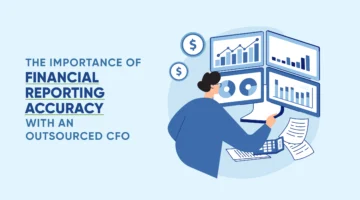Debt Management Strategies for Business Owners
Debt can serve as a useful tool when starting and growing a business. In fact, debt financing in the form of a small-business loan is one of the most common ways to fund a business. However, even when the debt is necessary, it remains crucial to frequently monitor all liabilities. Especially for small and medium-sized businesses, debt must be carefully managed in order to remain beneficial. We’ll address effective debt management strategies below.
Review and Prioritize Debts
The first step in managing any issue is to bring awareness to it. So, when implementing debt management strategies, first review all of the liabilities that your business has. This could include:
- Any bank loans or overdrafts
- Any business credit cards, as well as the interest rates and monthly payment amounts
- Lease obligations or contracts
- Employee-related liabilities, such as wages, benefits, pension, or post-retirement benefits
- Business taxes
Once you’ve reviewed your liabilities, you can begin to prioritize them. Which liabilities have the most adverse consequences for late payment? For example, not being able to make payroll can put your entire workforce at risk.
Consider a Debt Payment Strategy
A debt payment strategy won’t fix all of your problems (such as the need to manage overall debt acquisition), but it can save you money in interest. Two common methods for paying off debt quicker include:
- The debt avalanche strategy, which entails making extra payments to the debt with the highest interest rate and minimum payments on all other debts.
- The debt snowball strategy, which means tackling the smallest debts first. Once those are paid off, continue to pay the same amount towards the bigger debts. Essentially, you act as though the smaller debt was never paid off by allotting the same payment amount for other debts.
Both strategies have advantages and disadvantages. If you’re unsure of which debt payment method to employ, or how much your business can afford for extra debt payments, these challenges make great accounting jobs. Consider delegating debt management tasks to your accounting team, or bringing in an outside consultant if necessary to get your business back on track.
Evaluate the Business Budget
How much do you know about your company’s current financial situation? When was the last time you reevaluated the budget? As your business grows and changes, it’s reasonable to adjust your budget to allow yourself some more breathing room.
A good budget should include all of your income sources, fixed costs, and variable expenses. You can also include a cash flow forecast to better take into account expected transactions outside of your P&L. The ultimate goal of your budget is to help you to establish a habit of allotting funds to pay suppliers, employees, creditors, and other liabilities. Reviewing and updating your budget as your business changes is key to not only managing your debt, but other parts of your business as well.
Improve Cash Flow
Cash flow is one of the key indicators of a business’ health, as well as its chances of enjoying long-term success. However, it is also one of the most difficult aspects to manage well. For example, if your business has revenue coming in, but routinely struggles with slow collections, it can be difficult to cover your liabilities in a timely manner.
Implementing cash flow management strategies can free up additional funds to make debt payments on time, as well as make additional payments where you can. Consider adding a cash flow forecast if you don’t have one has part of your budget, as well as reviewing your AP and AR processes.
Review Loan Terms
Depending on the terms of your existing loans, it may be worthwhile to review them and ensure that your rates are competitive. Refinancing your loans can also give you an opportunity to restructure your debt in a way that makes it more manageable for your business. Consider consolidating multiple loans into one source or changing its duration so that it’s more favorable to your business needs.
Increase Revenue
When your business is profitable, you may become too focused on top-line revenue and neglect areas in which you’re losing money. Conducting a profitability review can highlight any issues with pricing, customers that have gone cold, or services and products that aren’t doing well. When you bring more awareness to the profitability of your business, you can identify areas to increase revenue. And, of course, with more revenue comes an increased ability to pay liabilities.
Reduce Business Costs
If your business is struggling to maintain a healthy cash flow—and consequently struggling with debt payments—you have to either increase revenue or reduce business costs, the latter of which tends to be easier. To begin, determine your total business expenses from the last six months. Next, determine recurring expenses, such as rent, utilities, subscriptions, or software fees. Add up the costs, then multiply that number by 10 percent. Then, determine ways in which you can cut your business expenses by that percentage. The freed-up funds can then be used towards your highest debt priorities.
As is the theme in each of these recommendations, the key to successful debt management starts with financial visibility. By bringing awareness to all areas of your business, and by conducting regular reviews, you can obtain the financial visibility needed to make prudent organizational decisions.
Learn More: Navigating Debt Wisely



